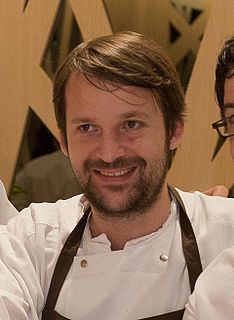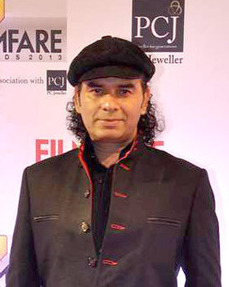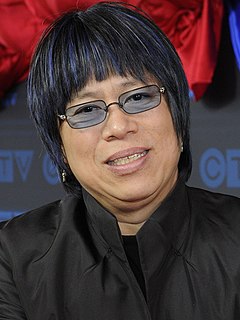A Quote by Nicole Mones
You know how someone - something - surprises you. You wake up a little bit. That's done through Chinese cuisine - for example, through dishes of artifice. That's a whole sub-tradition in Chinese cuisine. To create a dish that comes to the table looking like one thing but actually is something else.
Related Quotes
They say that the cuisines of different Chinese provinces arose originally to serve different kinds of constituencies. Beijing was the cuisine of officials. In Shanghai, that was the cuisine of wealthy merchants and industrialists. In Szechwan, the food of the common people. Many great Szechwan dishes originated in street stalls.
Every country possesses, it seems, the sort of cuisine it deserves, which is to say the sort of cuisine it is appreciative enough to want. I used to think that the notoriously bad cooking of the English was an example to the contrary, and that the English cook the way they do because, through sheer technical deficiency, they had not been able to master the art of cooking. I have discovered to my stupefaction that the English cook that way because that is the way they like it.






































